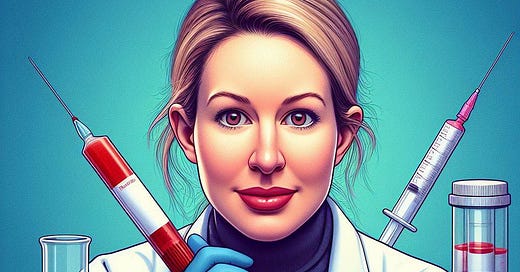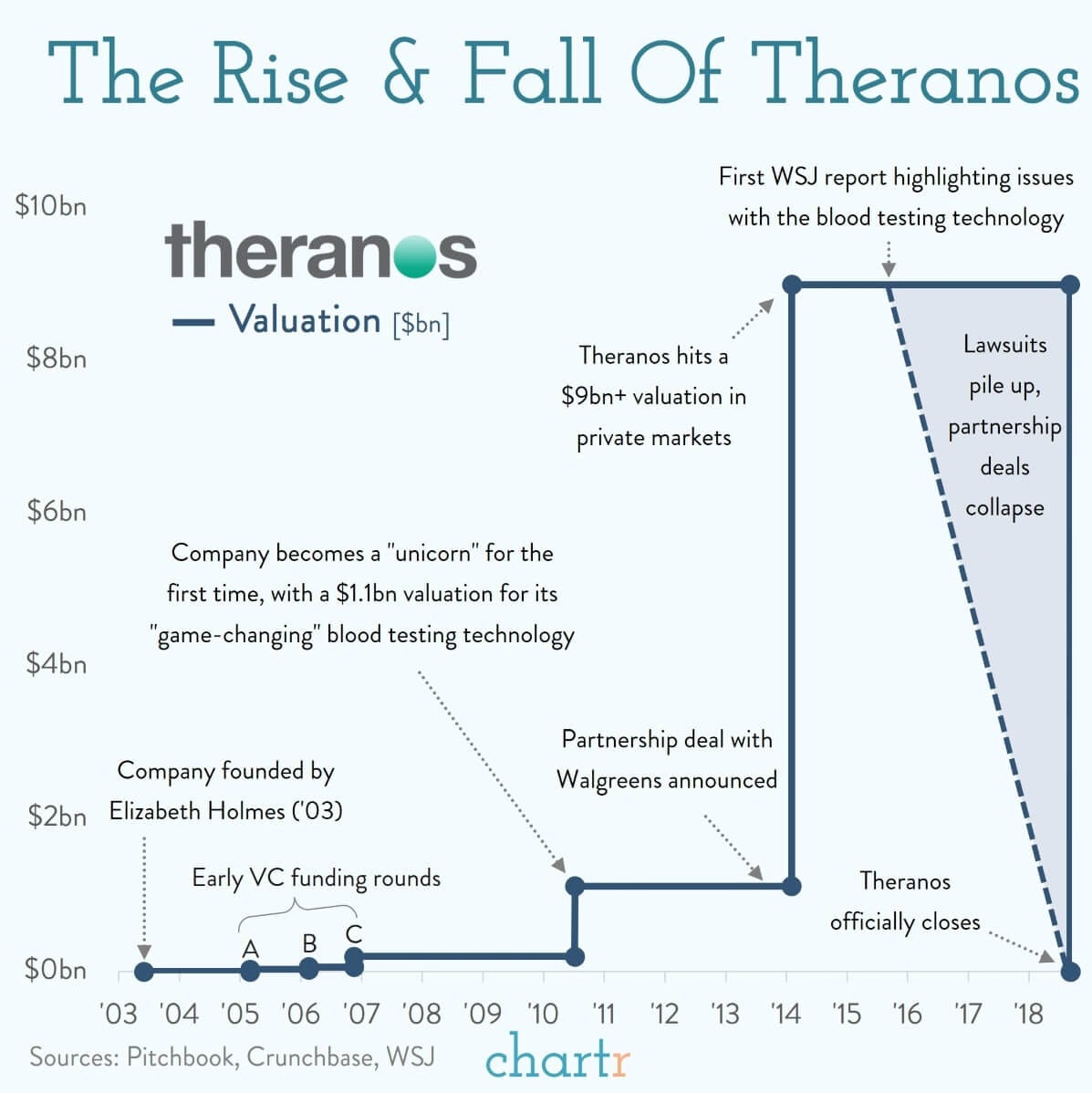Elizabeth Holmes sets her sights on transforming healthcare. She envisions a future where blood tests are faster, cheaper, and more accessible to everyone. With this ambitious goal in mind, she launches Theranos, a company that promises to revolutionize the way we diagnose diseases.
Theranos's technology, the Edison device, was touted as a groundbreaking innovation. Theranos was valued at a staggering $9 billion, poised to revolutionize the medical industry.
Theranos promised to revolutionize the medical industry by developing a blood-testing device called the Edison that could conduct a wide range of tests using only a few drops of blood.
This was a stark contrast to traditional methods that required large blood samples. The Edison was touted as a groundbreaking innovation that would make blood tests faster, cheaper, and more accessible to everyone.
Theranos technology was based on two main components:
Nanotainers: These were tiny vials that held the blood sample. The nanotainers were designed to be small and easy to use, so that patients could collect blood samples themselves at home or at Theranos's partner retail pharmacies.
Edison: This was the blood-testing device. The Edison was supposed to be able to analyze the blood samples in the nanotainers using a miniature microfluidics chip. This chip would separate the blood cells from the plasma and then run the plasma through a series of tiny channels. Each channel was coated with antibodies that would bind to specific molecules in the plasma. The binding of antibodies would create electrical signals that could be measured and interpreted to determine the levels of various substances in the blood.
The process of using the Theranos system was as follows:
The patient would prick their finger with a lancet to collect a small blood sample.
The sample would be placed in a nanotainer.
The nanotainer would be inserted into the Edison device.
The Edison would analyze the sample and produce test results.
Theranos claimed that its technology could perform a wide range of tests, including cholesterol, glucose, and hormone levels. The company also claimed that its tests were more accurate than traditional blood tests, which required larger blood samples.
In 2015, cracks began to appear in Theranos's façade. Investigative journalism and whistleblowers exposed the company's fraudulent claims.
The Edison device, far from being a revolutionary breakthrough, was riddled with problems and malfunctions. Theranos had been secretly using traditional blood-testing machines for the majority of its tests.
Theranos's downfall was swift and dramatic.

After the publication of John Carreyrou's investigative article in The Wall Street Journal , which exposed the company's fraudulent claims, Theranos's partnerships with Walgreens and other retail pharmacies were terminated.
The company's investors lost billions of dollars, and Elizabeth Holmes and Ramesh Balwani, the company's co-founders, were indicted on criminal charges of fraud and conspiracy.
In 2017, Theranos filed for bankruptcy and ceased operations. The company's assets were liquidated, and its clinical laboratories were closed. Holmes and Balwani's criminal trials began in 2021.
Holmes was found guilty of four counts of wire fraud and conspiracy to commit wire fraud in January 2022 and is currently awaiting sentencing. Balwani's trial is ongoing.
The downfall of Theranos was a major scandal that shook the medical industry and Silicon Valley.
It raised questions about the ethical conduct of entrepreneurs and the need for greater scrutiny of claims made by start-ups.
The scandal also highlighted the importance of transparency and accountability in the healthcare industry.
False promises about life-altering technology can have devastating consequences, not only for investors but also for patients whose health may be put at risk.
Elizabeth Holmes, the once-celebrated CEO of Theranos, faced legal repercussions for her role in the scandal. Her meteoric rise from a promising young entrepreneur to a disgraced figure serves as a stark warning against unchecked ambition and the pitfalls of prioritizing hype over substance.
The Theranos saga reshaped the conversations around Silicon Valley startups, raising questions about their accountability and the need for rigorous scrutiny of their claims. It's a cautionary tale for investors, entrepreneurs, and the entire healthcare industry, reminding us that the pursuit of innovation must be grounded in ethical principles and responsible practices.
Theranos's story is a cautionary tale about the dangers of unchecked ambition, the importance of ethical leadership, and the need for transparency in the business world.








Share this post